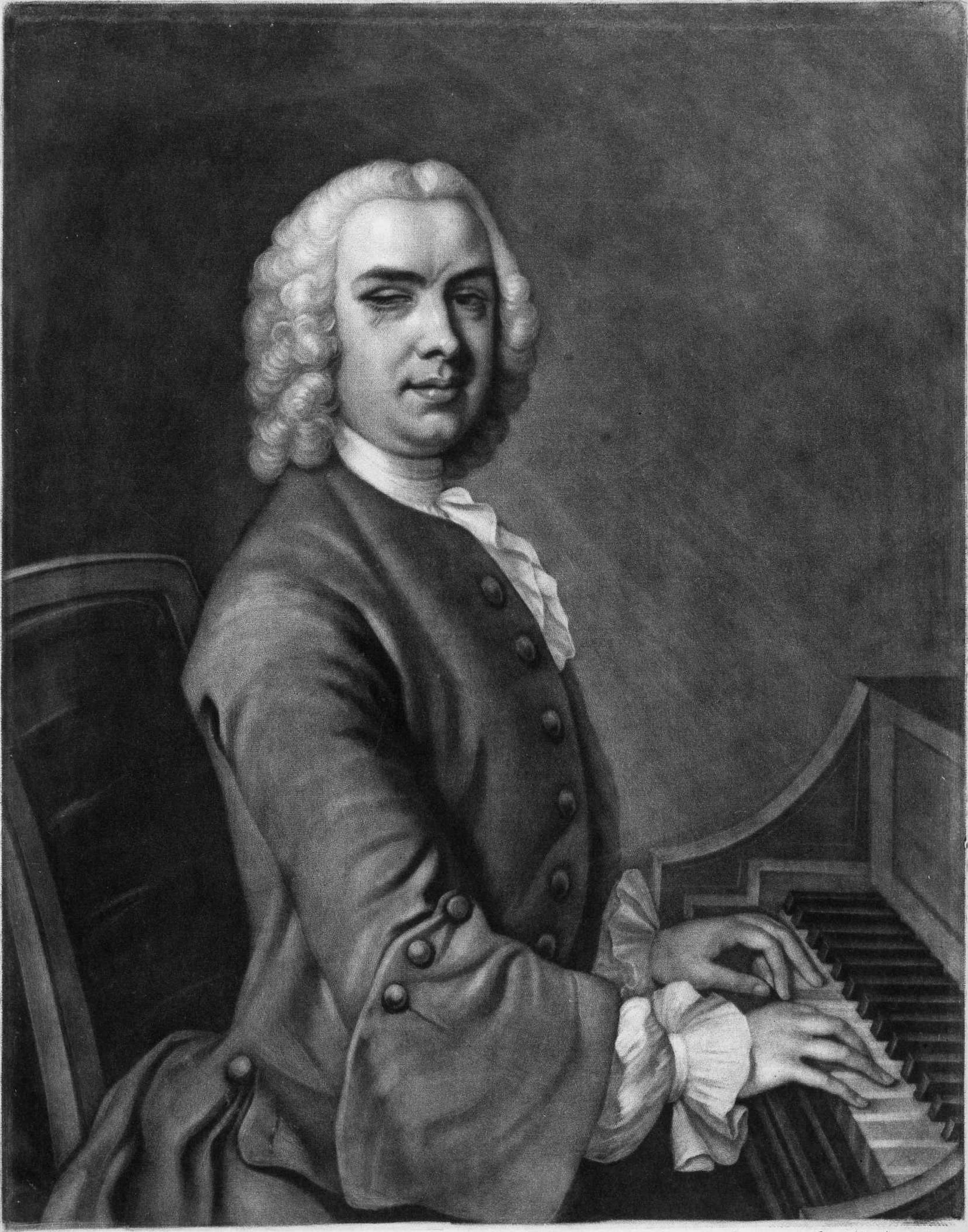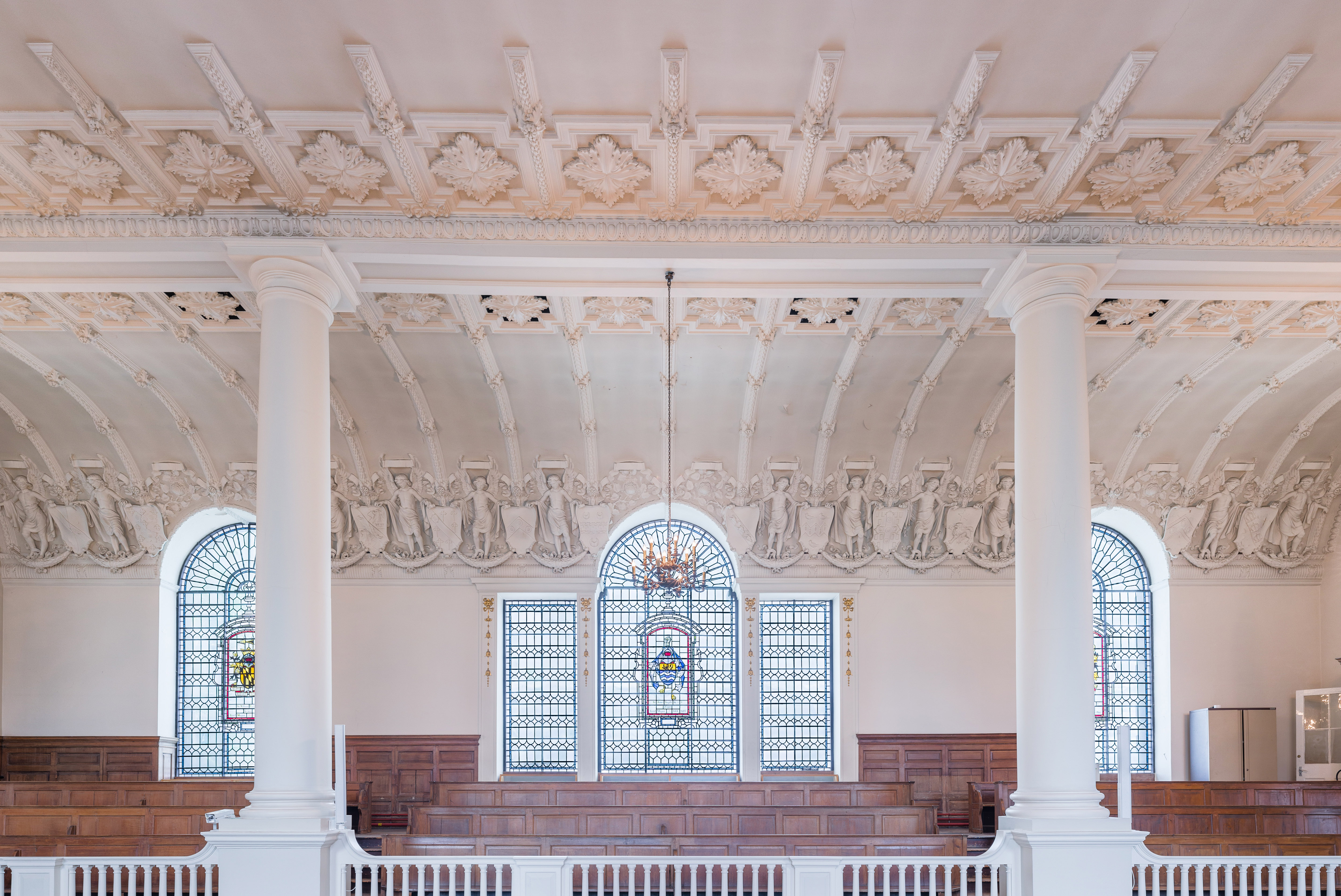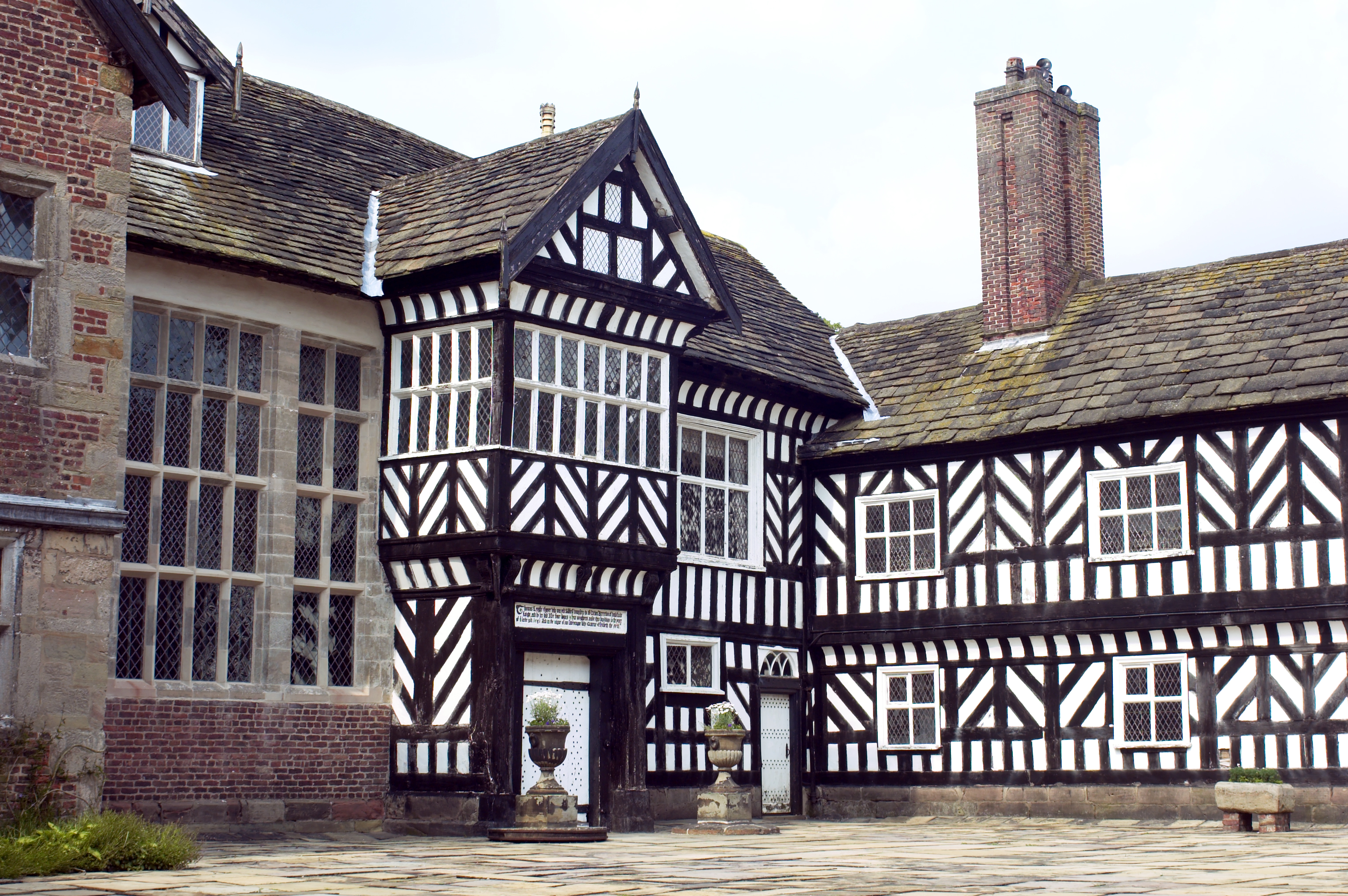|
The Elusive English Organ
Daniel Moult (born 1973) is a concert organist, educator and animateur, ensemble player and presenter of films about music. Education Daniel Moult was born in Manchester. He attended Manchester Grammar School and St John's College, Oxford, where he was organ scholar. While at Oxford he became a Fellow of the Royal College of Organists winning three of the top prizes, and was jointly awarded the University of Oxford's John Betts Organ Scholarship. He studied as a post-graduate at the Conservatorium van Amsterdam, where his teacher was Jacques van Oortmerssen. Career Daniel Moult is Head of Organ at the Birmingham Conservatoire, where he leads one of the most vibrant organ departments in the UK, with regular trips to Europe and visits from the best international organists, and new facilities including a purpose built organ studio and £3 million worth of new instruments. He is a trustee of the Royal College of Organists, for which he also examines, and he teaches in London th ... [...More Info...] [...Related Items...] OR: [Wikipedia] [Google] [Baidu] |
Animateur
An animateur is a musical professional whose role is to engage audiences with a new or unfamiliar form of music, "bringing it to life" beyond what might be expected in a traditional performance. The role of animateur developed from the French concept of "animation socio-culturelle" and first became established in the 1980s as musical outreach activities were being formalised in the UK. Because the role has roots in the United Kingdom, they are most common in the English-speaking world. While an animateur is likely to have some skill in performance (with voice or instrument), conducting, teaching and possibly composition or arrangement, their principal role is to assist the communication of the performers and the audience. If working with a symphony orchestra, for instance, they might accomplish this through running participatory workshops to introduce audience members to aspects of the music to be performed, or by facilitating dialogue between performers and audience members. The ... [...More Info...] [...Related Items...] OR: [Wikipedia] [Google] [Baidu] |
Songs Of Praise
''Songs of Praise'' is a BBC Television religious programme that presents Christian hymns sung in churches of varying denominations from around the UK. The series was first broadcast in October 1961. On that occasion, the venue was the Tabernacle Baptist Church in Cardiff. It is one of the longest running series of its genre on television anywhere in the world. Presenters and contributors Presenters of the show have included Kwame Kwei-Armah, Geoffrey Wheeler, Michael Barratt, Cliff Michelmore, Sir Harry Secombe, Alan Titchmarsh, Roger Royle, Debbie Thrower, Bruce Parker, Ian Gall, Martin Bashir, Huw Edwards, Eamonn Holmes, Josie d'Arby, Jonathan Edwards, Steve Chalke, David Grant, Bill Turnbull, Sally Magnusson, Diane-Louise Jordan, Connie Fisher and Dan Walker. Guest presenters have included Sir Cliff Richard, Gavin Peacock, Michael Buerk, Pete Waterman, Ann Widdecombe and Caron Keating. Jonathan Edwards' departure from the programme in 2007 was notable after ... [...More Info...] [...Related Items...] OR: [Wikipedia] [Google] [Baidu] |
Marcel Dupre
Marcel may refer to: People * Marcel (given name), people with the given name Marcel * Marcel (footballer, born August 1981), Marcel Silva Andrade, Brazilian midfielder * Marcel (footballer, born November 1981), Marcel Augusto Ortolan, Brazilian striker * Marcel (footballer, born 1983), Marcel Silva Cardoso, Brazilian left back * Marcel (footballer, born 1992), Marcel Henrique Garcia Alves Pereira, Brazilian midfielder * Marcel (singer), American country music singer * Étienne Marcel (died 1358), provost of merchants of Paris * Gabriel Marcel (1889–1973), French philosopher, Christian existentialist and playwright * Jean Marcel (died 1980), Madagascan Anglican bishop * Jean-Jacques Marcel (1931–2014), French football player * Rosie Marcel (born 1977), English actor * Sylvain Marcel (born 1974), Canadian actor * Terry Marcel (born 1942), British film director * Claude Marcel (1793-1876), French diplomat and applied linguist Other uses * Marcel (''Friends''), a fictional monkey ... [...More Info...] [...Related Items...] OR: [Wikipedia] [Google] [Baidu] |
Samuel Wesley
Samuel Wesley (24 February 1766 – 11 October 1837) was an English organist and composer in the late Georgian period. Wesley was a contemporary of Mozart (1756–1791) and was called by some "the English Mozart".Kassler, Michael & Olleson, Philip (2001). ''Samuel Wesley (1766–1837): A Source Book''. Ashgate. Personal life Born in Bristol, he was the son of noted Methodist and hymnodist Charles Wesley, the grandson of Samuel Wesley (a poet of the late Stuart period) and the nephew of John Wesley, the founder of the Methodist Church. His early musical education mostly took place in the family home in Bristol, where Sarah Wesley, his mother, sang and played the harpsichord. Hymn tunes and the works of Handel were the family's favourite pieces. Samuel also had lessons from David Williams, the organist of All Saints' Church, Bristol. In 1771 his father acquired a second house, in Chesterfield Street, Marylebone, London. Samuel left Bristol for the house in London by 1778. Samu ... [...More Info...] [...Related Items...] OR: [Wikipedia] [Google] [Baidu] |
John Stanley (composer)
Charles John Stanley (17 January 1712 Old Style – 19 May 1786) was an English composer and organist. Biography John Stanley was born in London on 17 January 1712. At about the age of two, he fell on a marble hearth with a china basin in his hand, an accident which left him almost blind. He began studying music at the age of seven. Under the guidance of Maurice Greene, composer and organist at St. Paul's Cathedral, he studied "with great diligence, and a success that was astonishing" (Burney). At the age of nine he played the organ, probably as an occasional deputy, at All Hallows, Bread Street. When he was eleven years old, Stanley was appointed organist to the church at a salary of £20 per annum. When he was fourteen "in preference to a great number of candidates" (Burney) he was chosen as organist at St Andrew Holborn, and at the age of seventeen became the youngest person ever to obtain the Bachelor of Music degree (B.Mus.) from the University of Oxford. In 1734 he w ... [...More Info...] [...Related Items...] OR: [Wikipedia] [Google] [Baidu] |
George Frideric Handel
George Frideric (or Frederick) Handel (; baptised , ; 23 February 1685 – 14 April 1759) was a German-British Baroque music, Baroque composer well known for his opera#Baroque era, operas, oratorios, anthems, concerto grosso, concerti grossi, and organ concertos. Handel received his training in Halle (Saale), Halle and worked as a composer in Hamburg and Italy before settling in London in 1712, where he spent the bulk of his career and Handel's Naturalisation Act 1727, became a naturalised British subject in 1727. He was strongly influenced both by the middle-German polyphony, polyphonic choral tradition and by composers of the Italian Baroque. In turn, Handel's music forms one of the peaks of the "high baroque" style, bringing Italian opera to its highest development, creating the genres of English oratorio and organ concerto, and introducing a new style into English church music. He is consistently recognized as one of the greatest composers of his age. Handel started three c ... [...More Info...] [...Related Items...] OR: [Wikipedia] [Google] [Baidu] |
Henry Purcell
Henry Purcell (, rare: September 1659 – 21 November 1695) was an English composer. Purcell's style of Baroque music was uniquely English, although it incorporated Italian and French elements. Generally considered among the greatest English opera composers, Purcell is often linked with John Dunstaple and William Byrd as England's most important early music composers. No later native-born English composer approached his fame until Edward Elgar, Ralph Vaughan Williams, Gustav Holst, William Walton and Benjamin Britten in the 20th century. Life and work Early life Purcell was born in St Ann's Lane, Old Pye Street, Westminster – the area of London later known as Devil's Acre, a notorious slum – in 1659. Henry Purcell Senior, whose older brother Thomas Purcell was a musician, was a gentleman of the Chapel Royal and sang at the coronation of King Charles II of England. Henry the elder had three sons: Edward, Henry and Daniel. Daniel Purcell, the youngest of the b ... [...More Info...] [...Related Items...] OR: [Wikipedia] [Google] [Baidu] |
John Blow
John Blow (baptised 23 February 1649 – 1 October 1708) was an English composer and organist of the Baroque music, Baroque period. Appointed organist of Westminster Abbey in late 1668,John Blow Westminster Abbey. Retrieved 30 December 2019. his pupils included William Croft, Jeremiah Clarke and Henry Purcell. In 1685 he was named a private musician to James II of England, James II. His only stage composition, ''Venus and Adonis (opera), Venus and Adonis'' (ca. 1680–1687), is thought to have influenced Henry Purcell's later opera ''Dido and Aeneas''. In 1687, he became choirmaster at St Paul's Cathedral, where many of his pieces were performed. In 1699 he was appointed to the newly created post of Composer to the Chapel Royal. Early life and education Blow was probably born in the village of Collingham, ...[...More Info...] [...Related Items...] OR: [Wikipedia] [Google] [Baidu] |
Thomas Tomkins
Thomas Tomkins (1572 – 9 June 1656) was a Welsh-born composer of the late Tudor and early Stuart period. In addition to being one of the prominent members of the English Madrigal School, he was a skilled composer of keyboard and consort music, and the last member of the English virginalist school. Life Tomkins was born in St David's in Pembrokeshire in 1572. His father, also Thomas, who had moved there in 1565 from the family home of Lostwithiel in Cornwall, was a vicar choral of St David's Cathedral and organist there. Three of Thomas junior's half-brothers, John, Giles and Robert, also became eminent musicians, but none quite attained the fame of Thomas. By 1594, but possibly as early as 1586, Thomas and his family had moved to Gloucester, where his father was employed as a minor canon at the cathedral. Thomas almost certainly studied under William Byrd for a time, for one of his songs bears the inscription: ''To my ancient, and much reverenced Master, William Byrd'', and ... [...More Info...] [...Related Items...] OR: [Wikipedia] [Google] [Baidu] |
William Byrd
William Byrd (; 4 July 1623) was an English composer of late Renaissance music. Considered among the greatest composers of the Renaissance, he had a profound influence on composers both from his native England and those on the continent. He is often coupled with John Dunstaple and Henry Purcell as England's most important early music composers. He wrote in many of the forms current in England at the time, including various types of sacred and secular polyphony, keyboard (the so-called Virginalist school), and consort music. Although he produced sacred music for Anglican services, sometime during the 1570s he became a Roman Catholic and wrote Catholic sacred music later in his life. Life Early life Birth and background Richard Byrd of Ingatestone, Essex was the grandfather of Thomas Byrd, who probably moved to London in the 15th century. Thereafter succeeding generations of the Byrd family are described as gentlemen. William Byrd was probably born in London, the third s ... [...More Info...] [...Related Items...] OR: [Wikipedia] [Google] [Baidu] |
St Botolph's Aldgate
St Botolph's Aldgate is a Church of England parish church in the City of London and also, as it lies outside the line of the city's former eastern walls, a part of the East End of London. The full name of the church is St Botolph without Aldgate and Holy Trinity Minories and it is sometimes known simply as Aldgate Church. The ecclesiastical parish was united with that of the Church of Holy Trinity, Minories, in 1899. The current 18th-century church building is made of brick with stone quoins and window casings. The tower is square with an obelisk spire. Position and dedication The church stands at the junction of Houndsditch and Aldgate High Street approximately 30 yards east of the former position of Aldgate, a defensive barbican in London's wall The church was one of four in medieval London dedicated to Saint Botolph or Botwulf, a 7th-century East Anglian saint, each of which stood by one of the gates to the City. The other three were near neighbour St Botolph-without-Bi ... [...More Info...] [...Related Items...] OR: [Wikipedia] [Google] [Baidu] |
Adlington Hall
Adlington Hall is a country house near Adlington, Cheshire. The oldest part of the existing building, the Great Hall, was constructed between 1480 and 1505; the east wing was added in 1581. The Legh family has lived in the hall and in previous buildings on the same site since the early 14th century. After the house was occupied by Parliamentary forces during the Civil War, changes were made to the north wing, including encasing the Great Hall in brick, inserting windows, and installing an organ in the Great Hall. In the 18th century the house was inherited by Charles Legh who organised a series of major changes. These included building a new west wing, which incorporated a ballroom, and a south wing with a large portico. It is possible that Charles Legh himself was the architect for these additions. He also played a large part in planning and designing the gardens, woodland and parkland, which included a number of buildings of various types, including a bridge ... [...More Info...] [...Related Items...] OR: [Wikipedia] [Google] [Baidu] |

.jpg)




.jpg)

